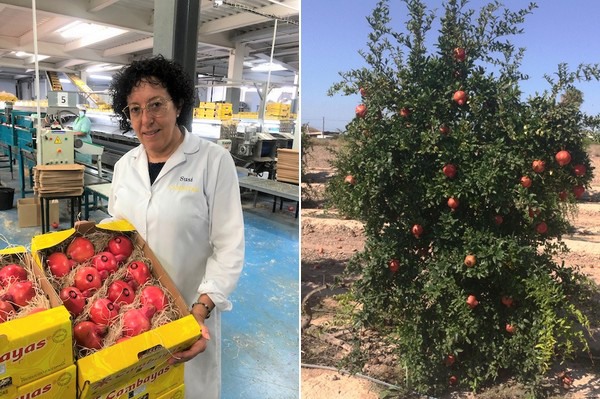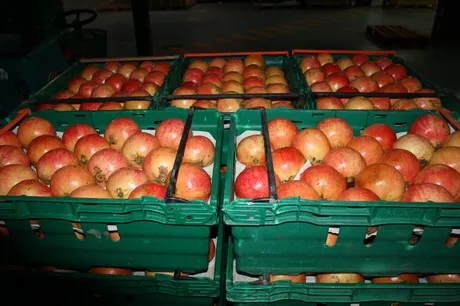The drop in the volume of business in the hotel and restaurant channel has resulted in the market being slow during the month of October, when the pomegranate supply from different producing areas in Spain and other countries in the Mediterranean usually peaks.
Despite this, prices are higher than last year due to the lower production. Currently, Spain is mainly marketing the Mollar de Elche pomegranate and, to a lesser extent, the Wonderful.

“This year, our Mollar pomegranate harvest has been reduced by around 25% compared to last season. It is also worth noting that there are around 10% more second class pomegranates due to the damage to the skin caused by sunburn,” says Susi Bonet, of the Cambayas cooperative from Elche, the main pomegranate producing area in Spain.
“Given the significantly lower supply of first-class pomegranates, prices are higher and, although the market has been slow so far, we are meeting the targets set at the beginning of the campaign. We hope, however, that sales will be better in November, since the supply of pomegranates from other Spanish producing areas and from third countries will be lower. The drop in the production will certainly be most noticeable from November," she says.

According to the representative of this cooperative, the largest producer of pomegranates in Spain, the pandemic is not having a clear impact on the consumption of this fruit, besides that caused by the closure of restaurants in some Spanish provinces and in other European countries. "We cannot plan our sales thinking about the coronavirus; we are facing the campaign as if it were a normal one," says Susi Bonet.
Cambayas sells its Mollar pomegranates on the domestic market and in various European countries such as France and the Netherlands, as well as in the United Arab Emirates, in the Middle East.
 For more information:
For more information:
Susi Bonet
CAMBAYAS COOP.V
T +34 966637588
susi@cambayas.com
www.cambayas.com
